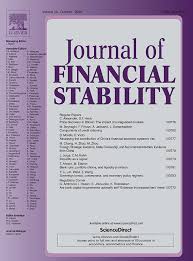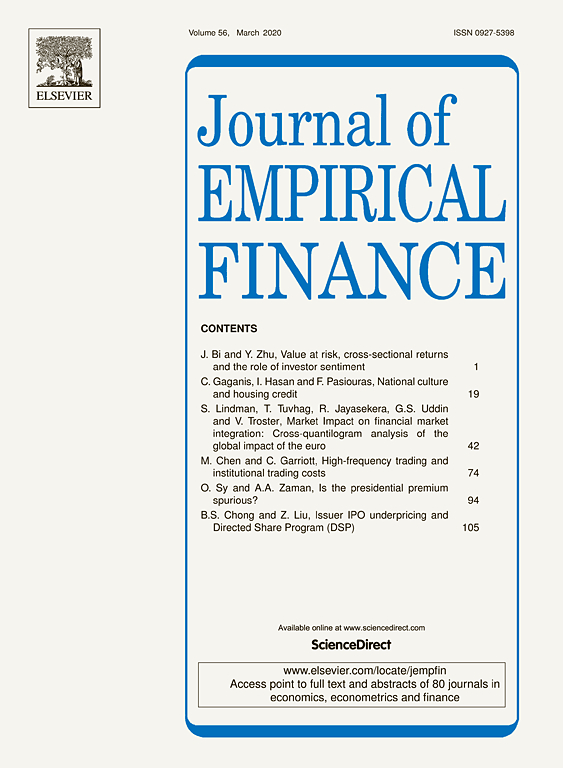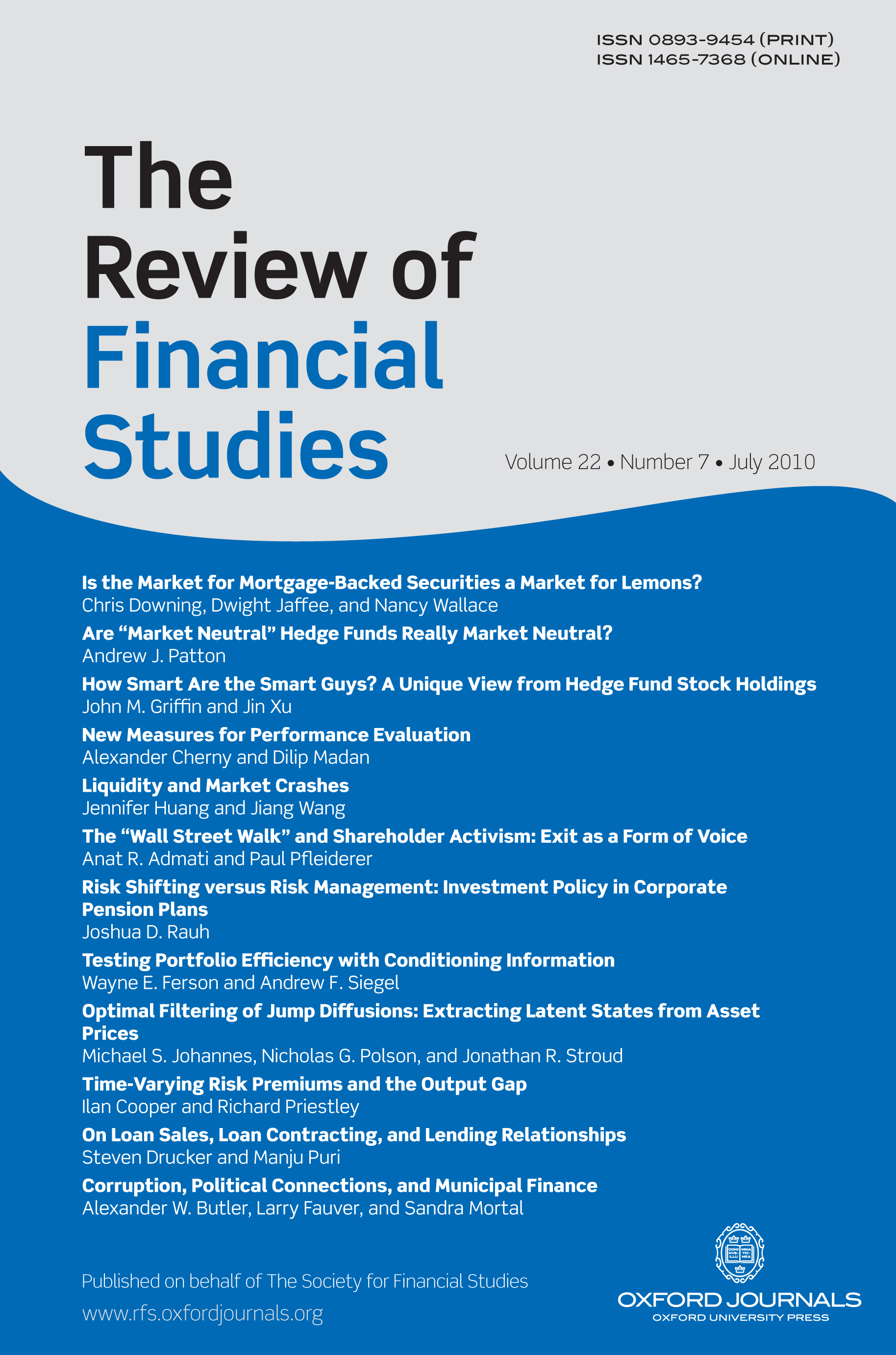Anpassungsfähigkeit und Resilienz des Finanzsystems
Diese Forschungsgruppe untersucht kritische Aspekte der Anpassungsfähigkeit und Widerstandsfähigkeit von Finanzsystemen. Sie analysiert die Auswirkungen von Naturkatastrophen auf Finanzsysteme, die Auswirkungen politischer Präferenzen für die grüne Transformation und die Bedeutung von Kultur in den Volkswirtschaften.
Forschungscluster
Finanzresilienz und RegulierungIhr Kontakt

- Abteilung Finanzmärkte
PROJEKTE
08.2022 ‐ 07.2025
OVERHANG: Schuldenüberhang und grüne Investitionen – die Rolle von Banken für den klimafreundlichen Umgang mit emissionsintensiven Anlagenvermögen
Bundesministerium für Bildung und Forschung (BMBF)
Ziel von OVERHANG ist es, die Rolle von Banken für den klimafreundlichen Umgang mit emissionsintensiven Anlagevermögen zu untersuchen. Hierdurch sollen politikrelevante Erkenntnisse zu Finanzregulierung, staatlich kontrollierter Kreditvergabe und Finanzstabilität identifiziert sowie eine Sensibilisierung der verschuldeten Akteurinnen und Akteuren erreicht werden.
Das Projekt wird vom Bundesministerium für Bildung und Forschung (BMBF) finanziert.
01.2015 ‐ 12.2019
Interactions between Bank-specific Risk and Macroeconomic Performance
Deutsche Forschungsgemeinschaft (DFG)
07.2016 ‐ 12.2018
Relationship Lenders and Unorthodox Monetary Policy: Investment, Employment, and Resource Reallocation Effects
Leibniz-Gemeinschaft
We combine a number of unique and proprietary data sources to measure the impact of relationship lenders and unconventional monetary policy during and after the European sovereign debt crisis on the real economy. Establishing systematic links between different research data centers (Forschungsdatenzentren, FDZ) and central banks with detailed micro-level information on both financial and real activity is the stand-alone proposition of our proposal. The main objective is to permit the identification of causal effects, or their absence, regarding which policies were conducive to mitigate financial shocks and stimulate real economic activities, such as employment, investment, or the closure of plants.
Referierte Publikationen

Do Banks Value Borrowers' Environmental Record? Evidence from Financial Contracts
in: Journal of Business Ethics, December 2021
Abstract
Banks play a unique role in society. They not only maximize profits but also consider the interests of stakeholders. We investigate whether banks consider firms’ pollution records in their lending decisions. The evidence shows that banks offer significantly higher loan spreads, higher total borrowing costs, shorter loan maturities, and greater collateral to firms with higher levels of chemical pollution. The costly effects are stronger for borrowers with greater risk and weaker corporate governance. Further, the results show that banks with higher social responsibility account for their borrowers’ environmental performance and charge higher loan spreads to those with poor performance. These results support the idea that banks with higher social responsibility can promote the practice of business ethics in firms.

The Impact of Political Uncertainty on Institutional Ownership
in: Journal of Financial Stability, December 2021
Abstract
This paper provides original evidence from institutional investors that political uncertainty greatly affects investment behavior. Using institutional holdings of common stock, we find that institutions significantly reduce their holdings by 0.8–2.3% points during presidential election years. Such effect holds for gubernatorial elections with cross-state-border difference-in-difference analysis and for tests using a political uncertainty index. The effect is the opposite for American Depository Receipts (ADRs). In addition, we find that institutions benefit financially from the observed strategy, and such strategy is in line with predicted outcomes of presidential election polls.

Banking Globalization, Local Lending, and Labor Market Effects: Micro-level Evidence from Brazil
in: Journal of Financial Stability, October 2021
Abstract
Recent financial crises have prompted the interest in understanding how banking globalization interacts with domestic institutions in shaping foreign shocks’ transmission. This paper uses regional banking data from Brazil to show that a foreign funding shock to banks negatively affects lending by their regional branches. This effect increases in the presence of frictions in internal capital markets, which affect branches’ capacity to access funding from other regions via intra-bank linkages. These results also matter on an aggregate level, as municipality-level credit and job flows drop in exposed regions. Policies aiming to reduce the fragmented structure of regional banking markets could moderate the propagation of foreign shocks.

Stock Price Fragility and the Cost of Bank Loans
in: Journal of Empirical Finance, September 2021
Abstract
This study examines whether the flow volatility experienced by institutional investors affects firms’ financing costs. Using Greenwood and Thesmar’s (2011) stock price fragility measure, we find that there is a positive relationship between fragility and firms’ costs of bank loans. This effect is most pronounced when lenders rely more on institutional shareholders to discipline corporate management, or when loans are made by relationship lenders, suggesting that unstable flows could weaken institutional investors’ monitoring effectiveness and strengthen relationship banks’ bargaining power.

Political Cycles in Bank Lending to the Government
in: Review of Financial Studies, Nr. 6, 2021
Abstract
We study how political party turnover after German state elections affects banks’ lending to the regional government. We find that between 1992 and 2018, party turnover at the state level leads to a sharp and substantial increase in lending by local savings banks to their home-state government. This effect is accompanied by an equivalent reduction in private lending. A statistical association between political party turnover and government lending is absent for comparable cooperative banks that exhibit a similar regional organization and business model. Our results suggest that political frictions may interfere with government-owned banks’ local development objectives.
Arbeitspapiere

Corporate Governance Structures and Financial Constraints in Multinational Enterprises – An Analysis in Selected European Transition Economies on the Basis of the IWH FDI Micro Database 2013 –
in: IWH Discussion Papers, Nr. 3, 2015
Abstract
In our analysis, we consider the distribution of decision power over financing and investment between MNEs’ headquarters and foreign subsidiaries and its influence on the foreign affiliates’ financial restrictions. Our research results show that headquarters of multinational enterprises have not (yet) moved much decision power to their foreign subsidiaries at all. We use data from the IWH FDI Micro Database which contains information on corporate governance structures and financial restrictions of 609 enterprises with a foreign investor in Hungary, Poland, the Czech Republic, Slovakia, Romania and East Germany. We match data from Bureau van Dijk’s AMADEUS database on financial characteristics. We find that a high concentration of decision power within the MNE’s headquarter implicates high financial restrictions within the subsidiary. Square term results show, however, that the effect of financial constraints within the subsidiary decreases and finally turns insignificant when decision power moves from headquarter to subsidiary. Thus, economic policy should encourage foreign investors in the case of foreign acquisition of local enterprises to leave decision power within the enterprise and in the case of Greenfield investment to provide the newly established subsidiaries with as much power over corporate governance structures as possible.



















